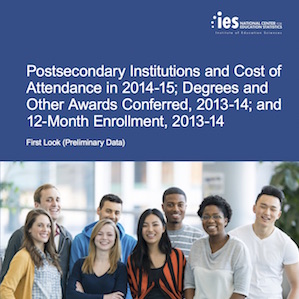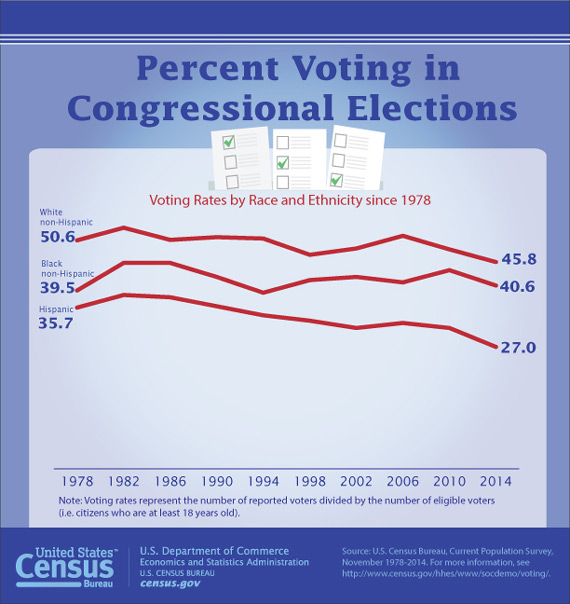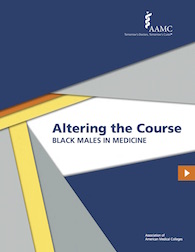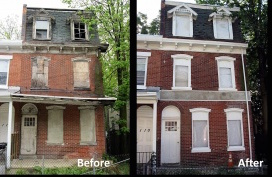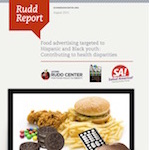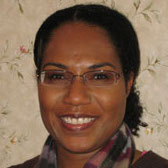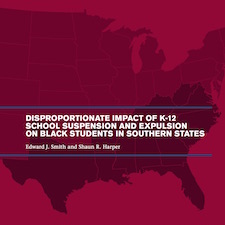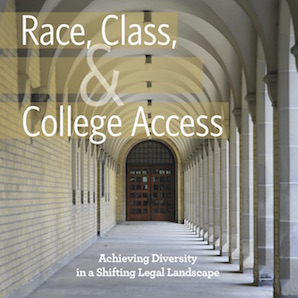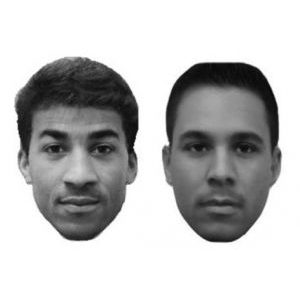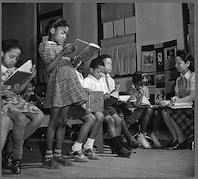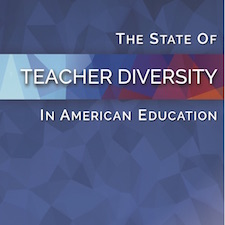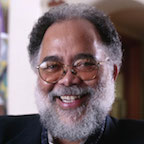Racial Differences in Educational Attainment of Students Who Were Ninth Graders in 2009
The data show that 83.2 percent of Black ninth graders in 2009 had obtained a high school diploma by 2013. For non-Hispanic Whites, the comparable figure was 91.6 percent. Some 6.6 percent of Black ninth graders in 2009 were not in school and did not hold a job in 2013.
Number of Black Admits Declines in the University of California System
This year, 2,653 Black first-year students from California were admitted to one or more University of California campuses. This is down from 2,712 in 2014 and 2,747 in 2013. Blacks were 4.3 percent of all admits from the state of California.
Survey Finds Few African Americans Among the Nation’s Elected Prosecutors
The data shows that 95 percent of the 2,437 elected prosecutors in this country are White. Some three fifths of all U.S. states have no elected Black prosecutors. More than half of all elected Black prosecutors nationwide are in Virginia and Mississippi.
Study Finds Blacks Have More Sleep-Related Problems Than Whites
Since sleep difficulties can lead to a higher risk for cardiovascular disease, stroke, diabetes, and other health complications, the racial differences in sleep disorders may be a significant factor in the overall racial health disparity in the United States.
UCLA Study Identifies Risk Factors for Mental Disorders Among African Americans
Research conducted at the Center for Culture, Trauma, and Mental Health Disparities at the University of California, Los Angeles, identifies factors that can predict depression, anxiety, and post-traumatic stress disorder among African Americans.
Duke Professor’s Program Seeks to Close the Racial Gap in Educational Achievement Among Youth
Angel L. Harris, a professor of sociology and African and African American studies at Duke University, is launching a new effort called Research on the Education and Development of Youth (REDY). His goal is to provide teachers with the tools to teach students who have different learning styles.
Racial Hate in Public Schools Appears to Be on the Decline
New data from the U.S. Department of Education shows that large numbers of Black students are still subjected to hate speech and hate-related graffiti at schools. But a far lower percentage of Black students were exposed in 2013 than was in the case in 2005.
A Decline in Black Enrollments in Higher Education: But Graduate Enrollments Inch Higher
There were 3,954,120 Black or African American students who were enrolled in higher education during the 2013-14 academic year. They made up 14.2 percent of all enrollments. Black enrollments were down 3.1 percent from the previous year.
New Study Led by University of Vermont Scholar Sheds Light on “Bias Awareness”
A new study led by Sylvia Perry, an assistant professor of psychological science at the University of Vermont, finds that Whites who are aware of their biases are better equipped to deal with society's racial challenges than Whites who believe they are racially colorblind.
Low Rates of African American Voting in Congressional Elections
Mid-term congressional elections are critically important in regards to African American higher education because Congress decides on federal support for historically Black colleges and universities and sets thresholds for Pell Grant awards and other federal financial aid.
Racial Differences in How Schools Deal With Disciplinary Problems
For classroom disruptions, White kids tend to get viewed as having ADHD, or having some sort of behavioral problem, while Black kids are viewed as being unruly and unwilling to learn.
University Research Finds a Link Between Poverty and Lower Brain Development
This is of particular importance to African Americans because the median income of Black families in the United States is only 60 percent of the median income of non-Hispanic Whites and Black families are three times as likely to be in poverty as non-Hispanic White families.
African Americans in the Workforce: New Report Examines Changing Demographics
A new report from the U.S. Equal Employment Opportunity Commission documents the progress of African Americans over the past half century in several occupational categories. Yet, in 2014 African Americans still filed 25,482 complaints of racial discrimination with the EEOC.
Why Black Men Are Making No Progress in Medical Education
In 1978, 1,410 Black males applied to U.S. medical schools. In 2014, the figure was 1,337. In 2014, women were 62.2 percent of all African Americans who applied to medical school. In every other major racial or ethnic group, men were a majority of all applicants.
Penn Study Finds Fixing Up Abandoned Buildings in Inner Cities Can Reduce Crime Rates
Near buildings where new windows and doors were installed, crime rates were down compared to neighborhoods were buildings were not renovated. Gun violence was down by 39 percent.
University Research Finds Insufficient Play Areas in Low-Income Neighborhoods
A new study by researchers in the School of Health Professions at the University of Alabama Birmingham documents a major disparity in play places for children depending on the average incomes of families in the surrounding area.
New University Study Finds That Racial Segregation Has Increased in Suburbia
The research team examined U.S. Census data in 1990 and 2010. They found while urban neighborhoods have become less segregated, an increased level of racial segregation has occurred in suburban communities and that many suburbs are becoming racially homogenous.
Presenting While Black: African American Speakers Face Challenges at Conferences
A new study by Ebony O. McGee of the College of Education at Vanderbilt University, and Lasana Kazembe of the College of Education at the University of Illinois at Chicago, examines the experiences of Black faculty members who give presentations at academic conferences.
Study Finds Lack of Racial Diversity in Hollywood’s Top-Grossing Films
Only 17 percent of the films had a lead actor from an underrepresented minority group. In 2014, 17 of the top-grossing films did not feature one Black or African American speaking character. Less than 5 percent of the directors were Black.
Higher Education Does Not Shield African Americans From the Racial Wealth Gap
From 1992 to 2013, the median net worth of African American college graduates is down by 55.6 percent. Over the same period, the median net worth of White Americans with a college degree rose by more than 86 percent.
University of Kansas Study Finds Darker Skin Negatively Affects Employment Prospects
The data, analyzed by researchers at the University of Kansas, showed that even after accounting for the effects of race and other demographic and education variables, darker skin lessened the likelihood that immigrant men would find jobs.
Workers With a More Diverse Group of Friends Outside the Job Are Better Employees
Research conducted at Ohio State University finds that employees who have a more diverse group of friends outside of work tended to have a more racially diverse network of associates at work and perform better at their jobs.
Companies Target Minority Youth in Marketing Fast Food, Sugary Drinks, Snacks, and Candy
A new study from the Rudd Center for Food Policy & Obesity at the University of Connecticut finds that Black youth saw almost twice as many TV ads for candy, soda and other sugary drinks, and snacks than their White peers.
Racial Views of Blacks in Multiracial Congregations Come to Resemble the Opinions of Whites
According to a new study by researchers at three leading universities, explanations for inequality among members of multiracial church congregations become more similar across groups, coming to resemble the views of the Whites.
Study Finds That Racial Stereotypes Are Common in Major Print Media Outlets
The authors of the study examined thousands of photographic images in six popular American magazines. They found that 79 percent of all images of Asians were those of women. Nearly 60 percent of the photos of African Americans were men.
Report Documents Wide Racial Disparity in School Discipline in Southern States
A new study by researchers at University of Pennsylvania found that in one recent academic year, 1.2 million Black students nationwide were suspended from public K-12 schools. Some 55 percent of those suspensions occurred in 13 southern states.
ACE Report Examines Current Diversity Strategies in Higher Education Admissions
A new report from the American Council on Education documents admissions practices of colleges and universities in the current legal climate resulting from the most recent Supreme Court rulings on race-sensitive admissions practices.
African American Forest Owners in the South Tend to Shun Federal Assistance
A new study by scholars at the University of Georgia finds that many African American forest landowners do not take advantage of the federal assistance programs available to them. Legal and financial issues and distrust of the government limit participation.
Veterans Are More Likely to Live in Racially Integrated Neighborhoods Than Non-Veterans
Sociologists at the University of Connecticut and Brigham Young University examined records of more than 13 million home mortgages between 2008 and 2013. They found that veterans of all races were significantly more likely to live in racially integrated neighborhoods.
Study Finds That a Person’s Racial Biases Affect How They Perceive Multiracial Individuals
Participants were surveyed to determine their level of racial bias and then shown photographs of multiracial individuals. Those who were found to have higher degrees of racial bias were the most likely to perceive the multiracial individuals as Black.
Faculty Diversity Is Key in the Perception of Fair Discipline in Public Schools
A new study, authored by researchers at the University of Kansas and the University of Missouri, finds that both Black and White students at public schools with a higher percentage of Black teachers have the impression that discipline is more fair than at schools with a low number of Black faculty.
Stress From Discrimination Can Affect Black Teens for the Rest of Their Lives
A new study led by researchers at Northwestern University, finds that stress brought on due to continued exposure to racial animosity and discrimination negatively impacts hormonal levels in Black teenagers which can lead to a lifetime of health problems.
American Public Schools: White Teachers, Minority Students
From 1987 to 2012, the percentage of minority teachers in the nation's public schools has increased from 12 percent to 17 percent. However, it must be noted that minority students now account for about half of all public school students.
Stanford Led Study Examines Differences in the Use of African American Vernacular English
A new study led by John Rickford, the J.E. Wallace Sterling Professor in the Humanities and a professor of linguistics at Stanford University, examines the use of African American vernacular English (AAVE) by young Blacks depending on the economics characteristics of their neighborhoods.
Large Numbers of Black Students Experience Distress Over the Cost of Higher Education
A new study led by Micere Keels, an associate professor of comparative human development at the University of Chicago, finds that many Black and other minority college students suffer from anxiety over worrying about being able to pay their bills in order to stay enrolled in higher education.
What Are the College Prospects for the 4 Million Black Children Living in Poverty?
In 2014, there were 4,090,000 African Americans under the age of 18 in the United States who were living in poverty. The percentage of Black children in poverty rose from 33.7 percent in 2013 to 37.1 percent in 2014.








